What does ‘Intel Evo’ mean? An explainer on the new(ish) laptop standard
All about the Intel Evo platform
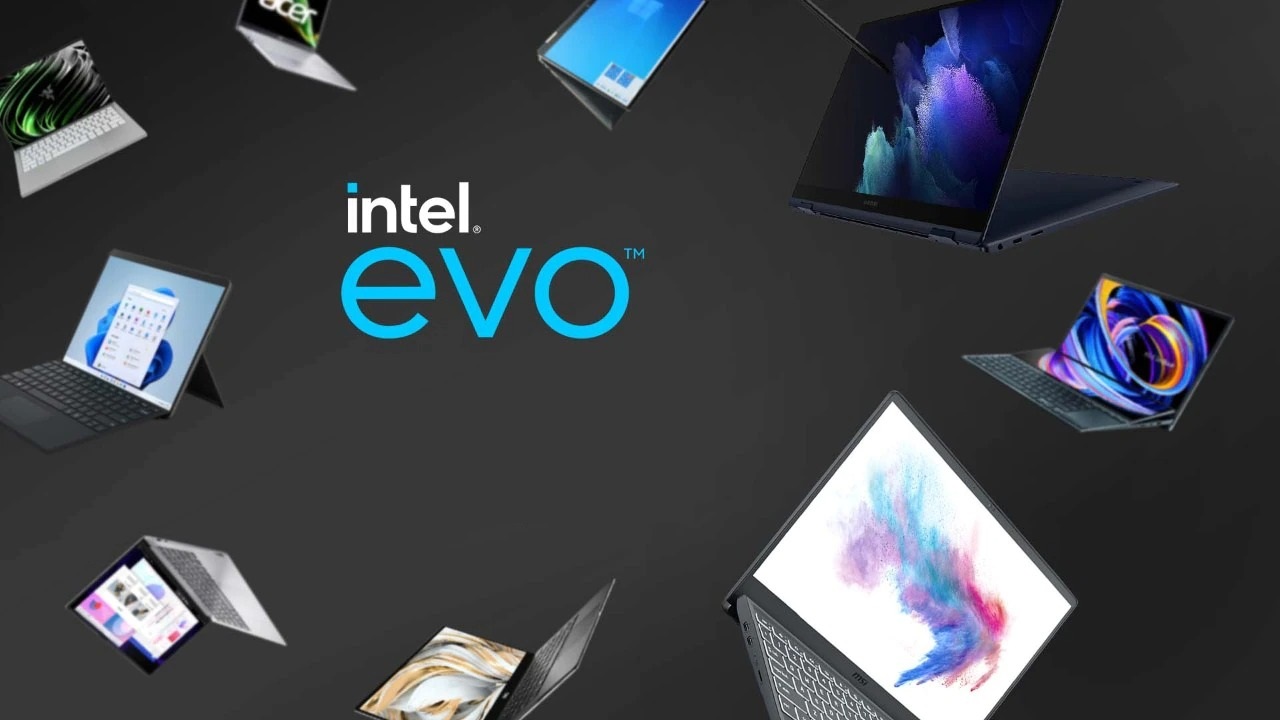
Sign up to receive The Snapshot, a free special dispatch from Laptop Mag, in your inbox.
You are now subscribed
Your newsletter sign-up was successful
“What does Intel Evo mean?” is a question baffled laptop shoppers often ask. To help explain it, let me give you an analogy: an Intel Evo sticker is to laptops as an FDA-approval badge is to grocery store products.
When you see “FDA approved” emblazoned across a food package, you likely have peace of mind knowing that a regulatory body reviewed the product, so you feel more confident about buying it, right? The same can be said about Intel Evo laptop stickers. In order for a laptop to be an Intel Evo laptop, it must meet strict, high standards regarding battery life, performance, weight, and more.
In other words, Intel Evo is the chipmaker’s certification platform that puts laptops through rigorous testing to prove that it’s worthy of earning the highly sought-after “Evo” badge. As such, when you stumble upon an Intel Evo sticker, rest assured that it’s been vetted to meet strict standards before getting Intel’s stamp of approval. At least — that’s Intel’s goal. I’m not convinced the chipmaker has accomplished this feat yet (you’ll see why in the following sections).
What are the Intel Evo requirements?
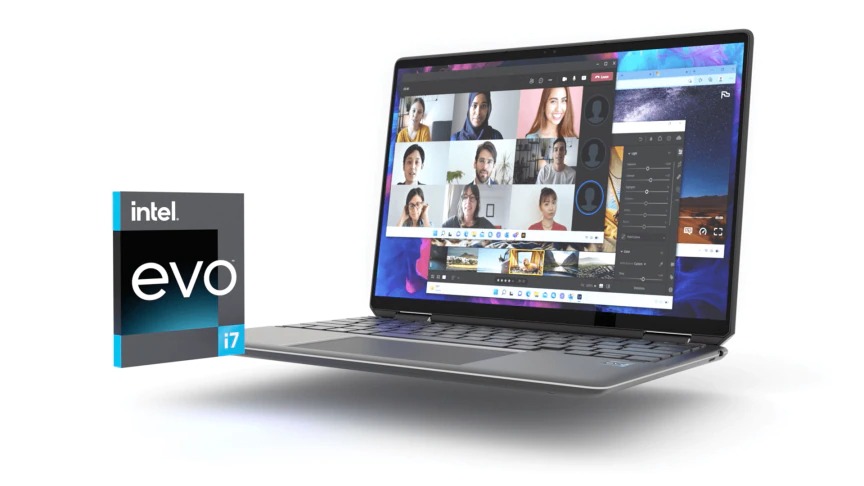
Curious about what features a laptop must possess before it can get the green light from Intel? Check out the must-haves below:
- 12th-Gen Alder Lake processor
- Minimum of 8GB of RAM and 256GB of storage
- At least 9 hours of battery life (on laptops with a FHD panel)
- Ultra-thin bezels
- Lightweight (under 3.3 pounds)
- Instant wake from sleep (less than 1 second)
- USB-C with Thunderbolt 4 support
- Wi-Fi 6E and optional LTE
- Biometric authentication (e.g. fingerprint reader or IR camera)
- Precision touchpad
- Fast charging
- Keyboard with backlight
- Decent speakers
- Intelligent collaboration (optimized for multitasking and works seamlessly with productivity/video-conferencing apps like Zoom, Slack and Microsoft Office)
Interestingly, that last requirement — intelligent collaboration — was introduced early this year. In fact, this list was tweaked three times since its 2020 launch. Before Intel Evo was, well, “Intel Evo,” it was called Project Athena, the code name for the program. You can take a look at Project Athena’s original requirements here to see how the requirements have evolved over the years. Technology is always advancing, even as we speak, so by the time CES 2023 rolls around, Intel is bound to release a fourth iteration of the Intel Evo platform to ensure that customers are getting the crème de la crème of laptops.
Can I exclusively rely on the Intel Evo badge to shop for laptops?
I’ve reviewed countless laptops on the Intel Evo platform; I’d argue that it’s not a foolproof way to find the best laptops. For example, the MSI Prestige 14 Evo is an Intel Evo-certified laptop. While it dazzled us with nearly 11 hours of battery life, 2.7 pounds of featherweight goodness, and impressive performance, we were disappointed with its poor speakers and dim 245-nit display.
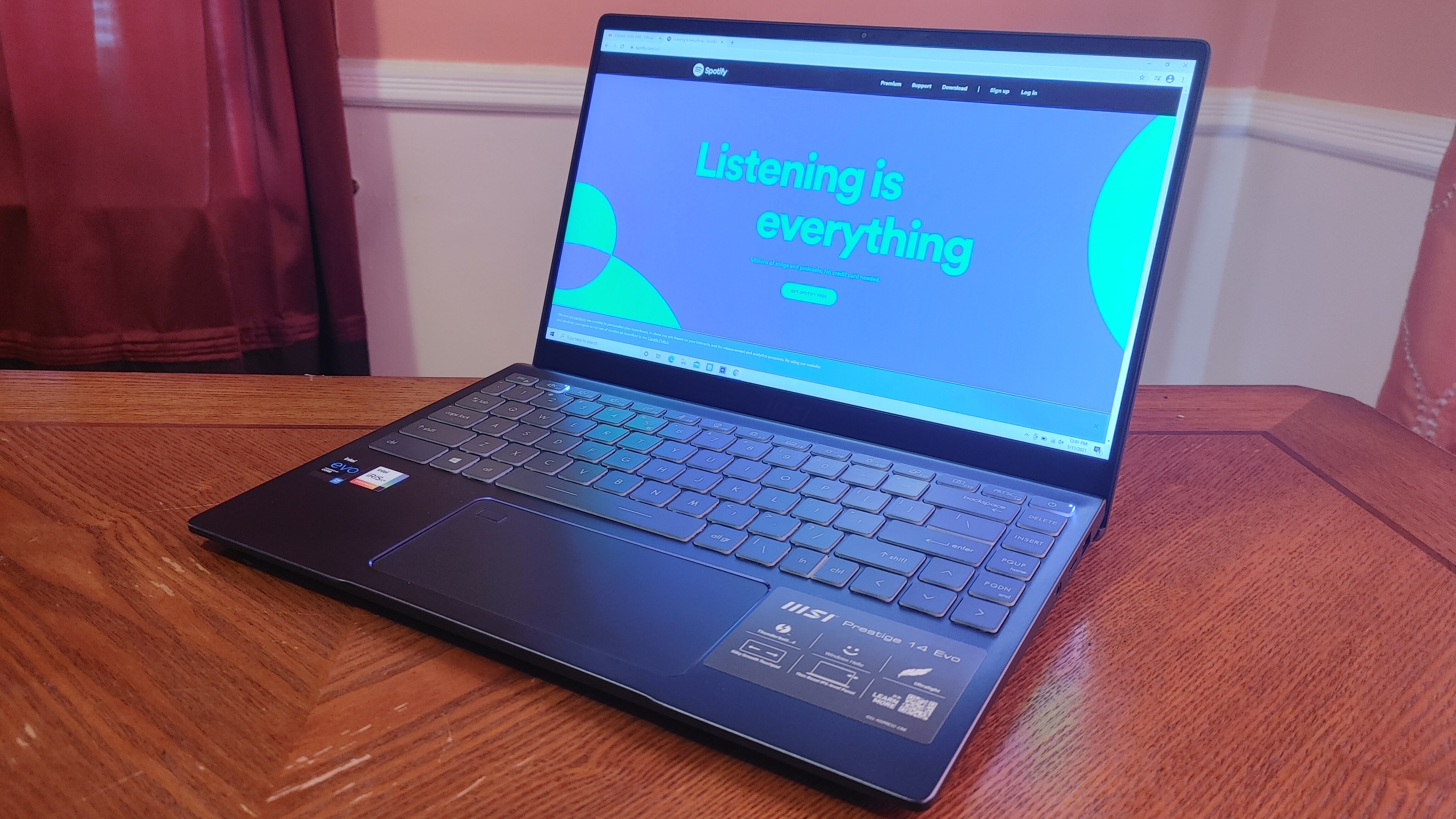
Some may be able to live with mediocre speakers (just snag one of the best wireless headphones), but the dim display may be a deal breaker. I don’t know about you, but I like to actually see my screen while I’m working throughout the day.
Sign up to receive The Snapshot, a free special dispatch from Laptop Mag, in your inbox.
Want another example? The Lenovo Yoga Slim 9i is an Intel Evo-certified laptop, but when we tested it ourselves, it failed to surpass the 9-hour requirement on our battery test. It barely lasted 8 hours! When we reviewed the Intel Evo-certified Dell XPS 13 Plus, it only lasted 7 hours and 34 minutes in our testing. Lame! Keep in mind, however, that this was the 4K model. The Intel Evo platform ensures that the full HD models exceed its battery runtime requirements, but not the 4K variants, so make sure to snag the right configuration.
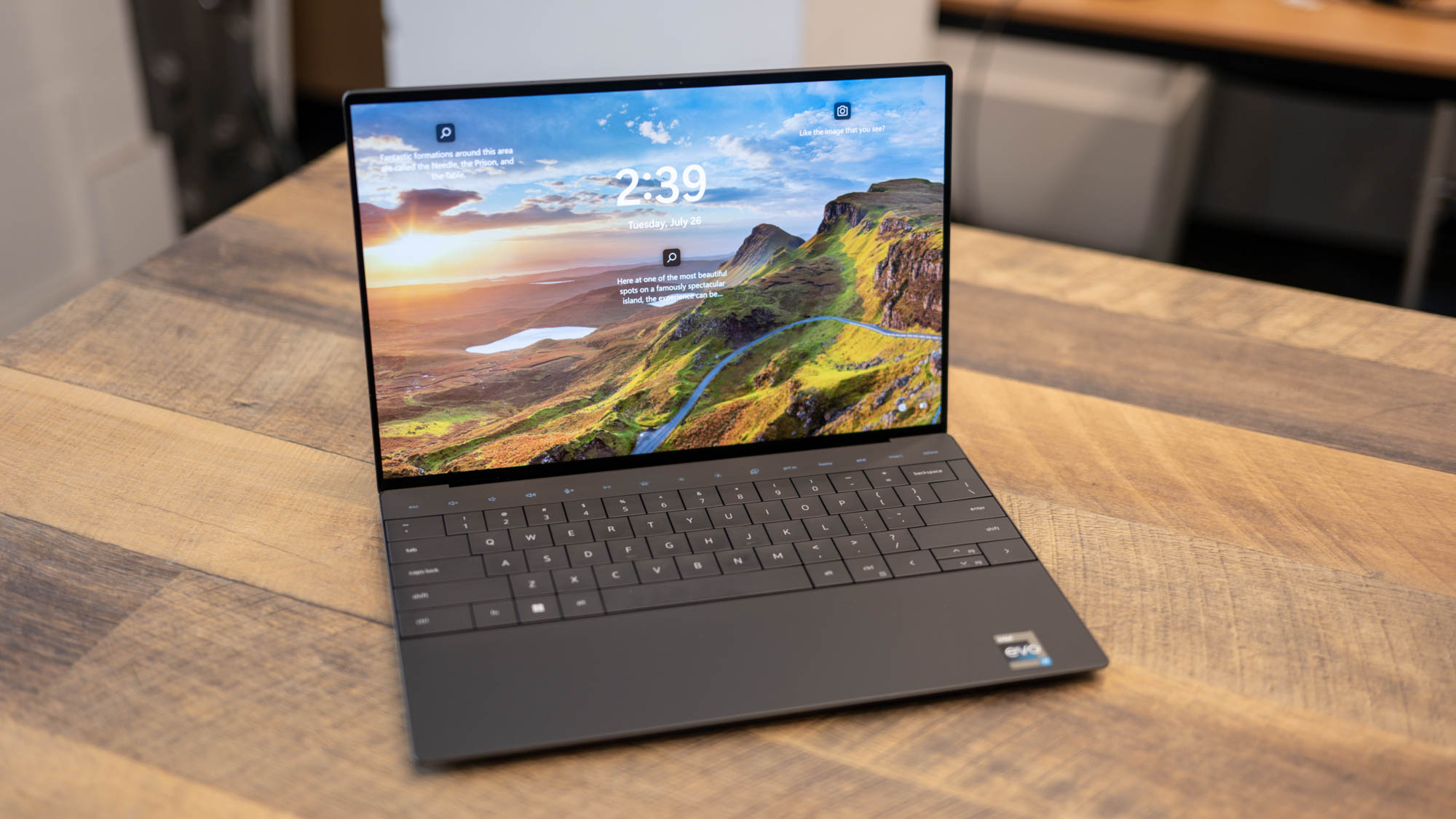
This is why us reviewers should be a crucial part of your shopping experience, giving you the nitty gritty details that an Intel Evo badge won’t reveal. This certification may indicate that a laptop lasts more than 9 hours (well, sometimes), but it won’t give you pertinent information about the responsiveness of the touchpad, the tactile satisfaction of the keyboard, the brightness of the display, and more.
Intel-Evo certified laptops marginalizes great contenders
This is obvious, but it’s still worth mentioning: Intel Evo-certified laptops kicks AMD laptops out of the party. And many AMD-packed ultrabooks with comparable specs give Intel-based laptops a run for their money.
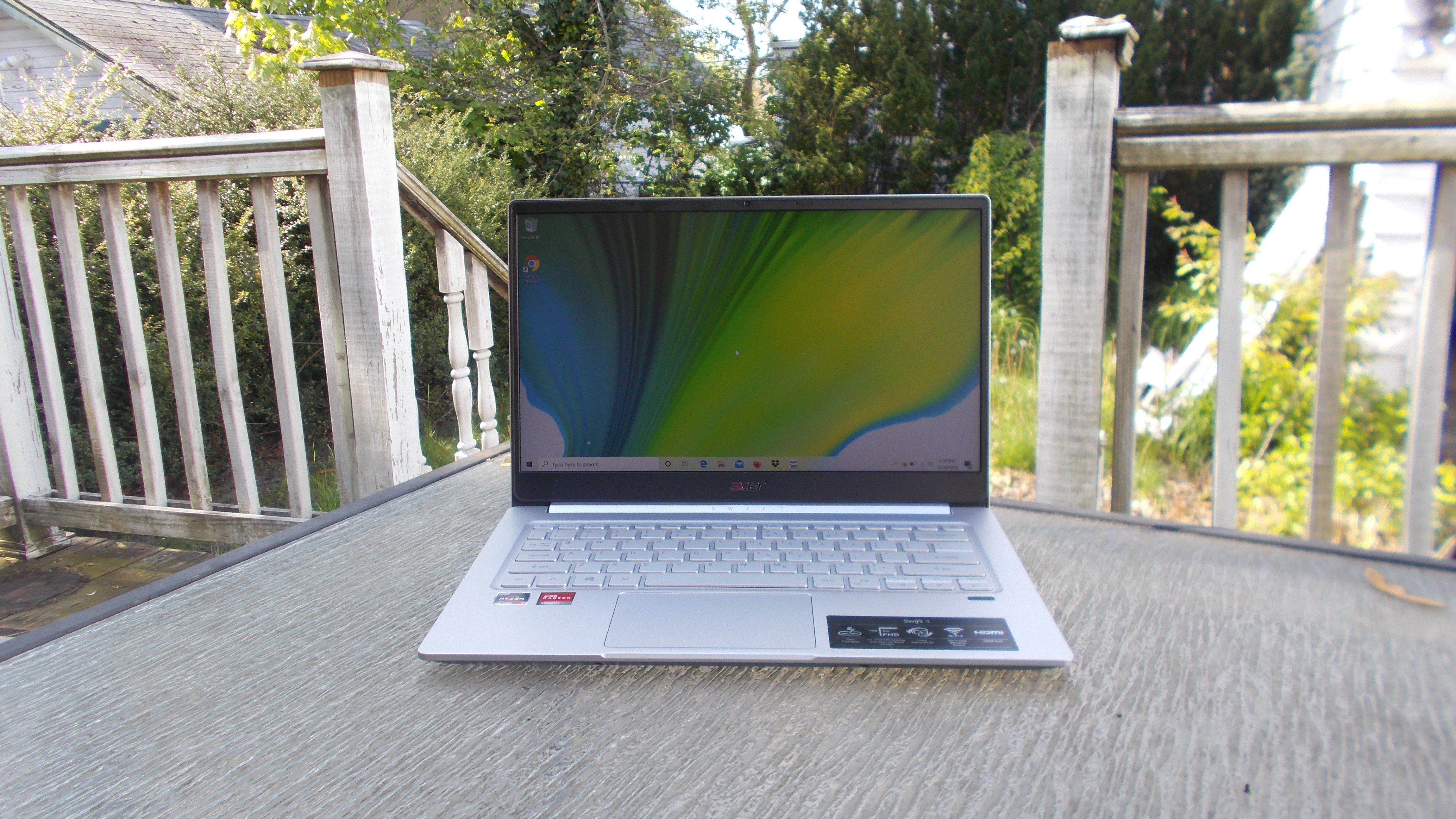
I remember when Acer released the Swift 3 (2020) with two different CPUs: one had an Intel CPU and the other housed an AMD processor. The Intel-packed Swift 3 stunk to high heavens with its tragically awful 7-hour runtime and crappy performance. The AMD-based Swift 3, on the other hand, crushed it, outputting 11 hours of battery life and offering performance that rivaled the Dell XPS 13 (2020) — and it costs $1,000 more! Of course, that Intel-based Swift 3 didn’t have an Evo certification, but the point is that you may be cheating yourself out of a better laptop by overlooking AMD models.
It’s also important to keep in mind that the Intel Evo certification may not appeal to budget-conscious shoppers; laptops with the badge often retail for more than $1,000.
What are the best Intel Evo laptops of 2022?
No, the Lenovo Yoga Slim 9i, the aforementioned Intel Evo-certified laptop, didn’t make the cut as one of our best laptops of 2022, but the Galaxy Book 2 Pro 360 did. With Intel’s thumbs up, this Samsung laptop wowed us with its gorgeous portable design, impressive performance, included S Pen, 12 hour battery life, and bright and vivid display — screw dim screens!
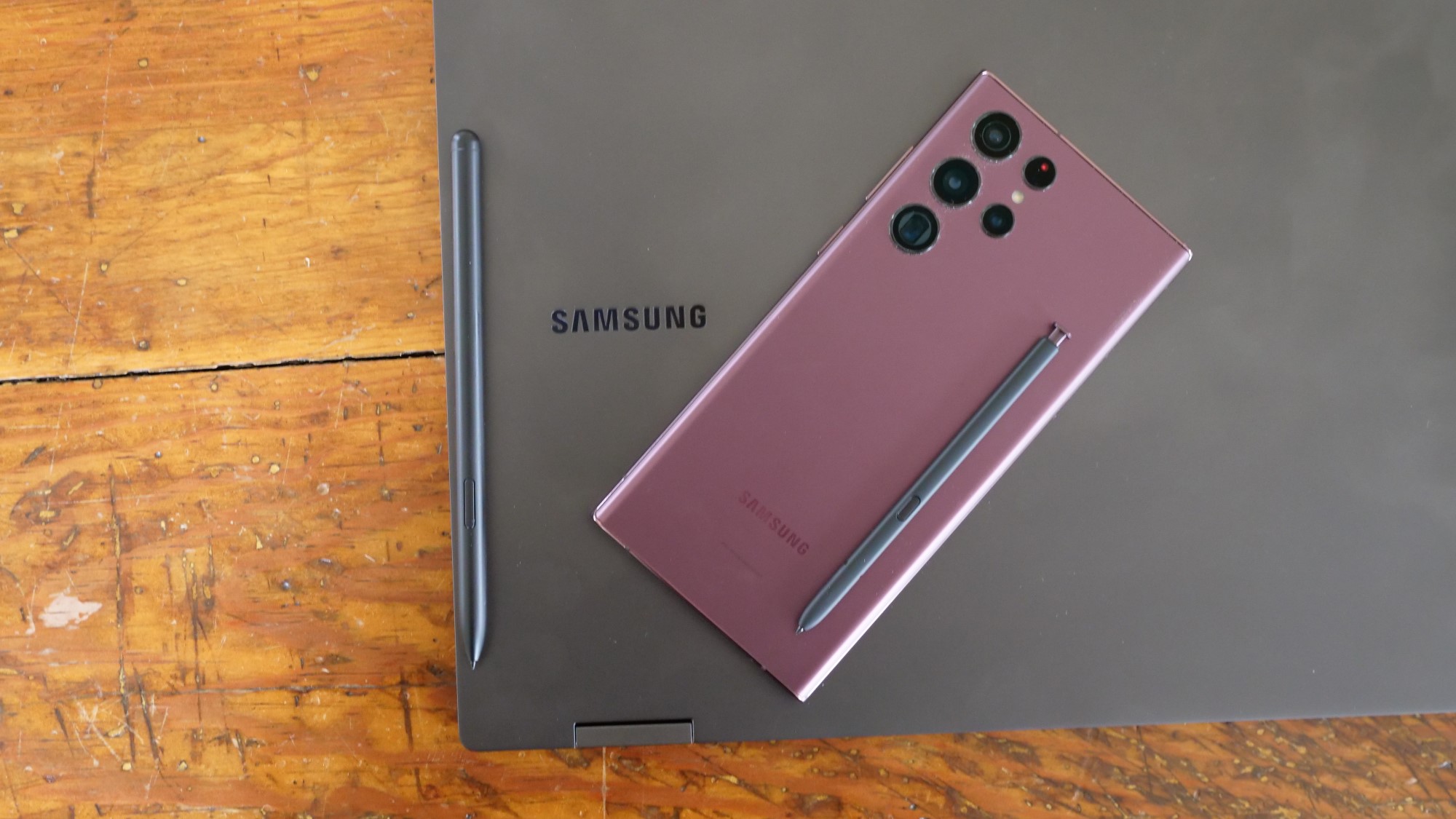
The Acer Swift 5 (2022) is another Intel Evo-certified laptop that won our hearts. It whooped its rivals' butts in our performance benchmarks. It also has a zippy SSD, ultra-fast video transcoding, rapid file-transfer rates, and long battery life. What's not to love?
Outlook
If Intel Evo wants to be seen as a reliable, dependable platform, its battery testing needs to be more rigorous to reflect real-world workflows. It also needs to add requirements for display brightness because sub-400-nit laptops simply don’t cut it, especially since all Intel Evo laptops are marketed as being compact, lightweight machines. Using a dim laptop while you’re on-the-go is a nightmare (trust me, I’ve tried it).
Once Intel rectifies these issues, you can shop incautiously with ease, confidently snagging laptops with Evo badges because you know that it will meet all your needs. Until then, you’re stuck with us reviewers who’ll give you a more in-depth, well-rounded look at what you’re buying that a silly Intel Evo sticker will never tell you.
Kimberly Gedeon, holding a Master's degree in International Journalism, launched her career as a journalist for MadameNoire's business beat in 2013. She loved translating stuffy stories about the economy, personal finance and investing into digestible, easy-to-understand, entertaining stories for young women of color. During her time on the business beat, she discovered her passion for tech as she dove into articles about tech entrepreneurship, the Consumer Electronics Show (CES) and the latest tablets. After eight years of freelancing, dabbling in a myriad of beats, she's finally found a home at Laptop Mag that accepts her as the crypto-addicted, virtual reality-loving, investing-focused, tech-fascinated nerd she is. Woot!

